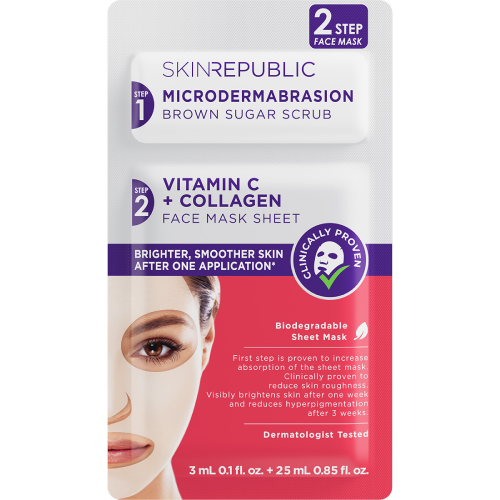5 Ways to add Vitamin C to your skincare routine
Incorporating Vitamin C into your skincare routine could literally change your skin. Find out why this ingredient is a beauty must-have, here.
The natural regenerative qualities of Vitamin C are prompting skincare experts to call it the “Holy Grail” of skincare ingredients. The lowdown? Topical Vitamin C helps your body repair damaged skin cells and can do wonders for pigmentation and dark spots.
A word of caution, though: it doesn’t matter what type of skin you have, the darker the skin the more difficult it is to get rid of pigmentation, says Sonette Donker of Skin iD Skin Studio in Johannesburg. But you can certainly see an improvement thanks to this antioxidant and it’s a case for not procrastinating. “It is always better to prevent pigmentation by applying your SPF daily and starting the Vitamin C application as soon as possible,” says Sonette.
Know your Vitamin C
Do various types of Vitamin C treatments tackle pigmentation and dark spots differently, depending on age or skin condition? “The biggest difference is not in the age or skin condition but in the types of vitamin C you can use,” says Sonette. “Water-soluble Vitamin C is very difficult to keep stable, whereas the oil-soluble type is easier to stabilise.”
“Some types of Vitamin C only work on the top, superficial layers of the skin as an antioxidant. Encapsulated Vitamin C, on the other hand, often penetrates the layers of the epidermis and can have an effect on pigmentation. Oil-soluble Vitamin C can penetrate into the dermis, increasing collagen stimulation.”
Now, choose your perfect product
Your best bet is to look for products that include ascorbic acid, also known as L-ascorbic acid (LAA). Try incorporating this wonder-ingredient through these at-home treatments to dose your skin with Vitamin C. Do a patch test first to make sure your skin has no sensitivity to the ingredients.
Oil
Dry skins will love a hydrating oil containing Vitamin C. Try applying African Extracts Bio-Active Rooibos Advantage Facial Oil (https://clicks.co.za/african-extracts_rooibos-advantage-facial-oil-30ml/p/297014) to your face before your serum.
Serum
Serums like Nivea Q10 Plus C Anti-Wrinkle Cream have been found to be better for your skin than creams or toners. Bonus beauty points if you add Vitamin E – another potent antioxidant – into the mix.
Mask
Who can resist a mask for an at-home pamper sesh? Pick one loaded with Vitamin C to treat your face once a week. We love Skin Republic Brightening Vitamin C & Collagen Mask.
Powder
Vitamin C comes in powder format too. All you have to do is mix it with your water-based serum or moisturiser, and you have illuminating super food for your skin!
Moisturiser
Invest in a refreshing day cream containing Vitamin C, like The Body Shop Vitamin C Glow Boosting Moisturiser. It’s likely to brighten your skin too.
IMAGE CREDIT: shutterstock.com




